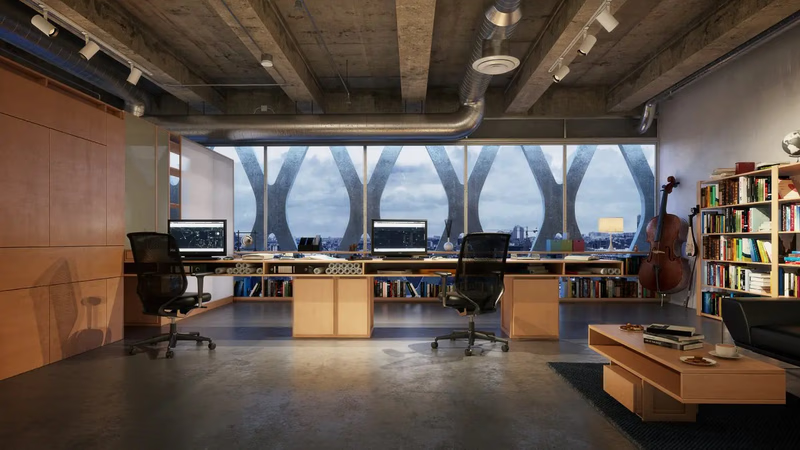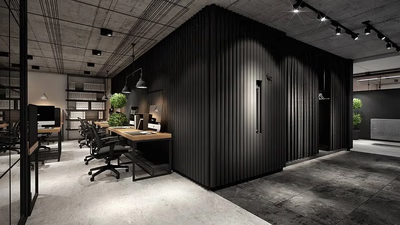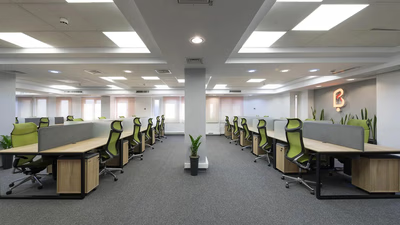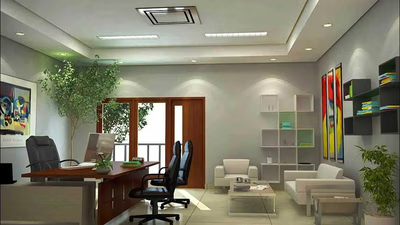
Explore office spaces in Middle East trade hubs.
Each city and country has its own conditions and benefits, and depending on the type of activity and your needs, other options may be suitable. These places are usually cities and regions that have provided good infrastructure and opportunities for businesses and companies. The best places to rent and buy an office in West Asia may include densely populated and commercial cities such as Tehran (Iran), Dubai (United Arab Emirates), Istanbul (Turkey), Riyadh (Saudi Arabia), Doha (Qatar) and Bahrain (Kingdom of Bahrain ) . ) be These cities are known as the commercial and financial centers of the region and offer many opportunities for international businesses.
Also, Niua (Oman), Kuala Lumpur (Malaysia), Bangkok (Thailand) and Singapore are also considered as suitable places to rent and buy offices in West Asia. These cities also offer suitable conditions in terms of transportation infrastructure, international trade, business environment and political establishment. The right amount of features and resources for each city depends on your needs and priorities. In Middle Eastern and West Asian countries , some of the best cities to rent and buy offices are:
- Dubai is one of the largest and most dynamic cities in the region and is known as an international center for business and finance. Dubai is very diverse in terms of business structure, establishment of companies and work culture.
- As the capital of Saudi Arabia and one of the most important cities in the Middle East, Riyadh is home to large business complexes and offices of international companies. Many companies in different industries operate in Riyadh.
- As the capital and commercial, financial and industrial center of Iran, Tehran is one of the most important cities in the region. In Tehran, there are different neighborhoods that are known as business centers and local and international companies.
- As a bridge between the continents of Asia and Europe, Istanbul is one of the strategic and popular cities in the region. Despite its economic and geographical power, Istanbul hosts many international companies and organizations.
- Tel Aviv is known as the heart of technology and innovation in the Middle East and is one of the leading cities for startups and technology companies. In Tel Aviv, there are technology complexes and business centers.
- Beirut is known as the commercial and financial center of Lebanon and one of the dynamic cities in the region. This city hosts local and international companies in various economic fields.
- Doha, as the capital of Qatar and the economic center of this country, has become an important business destination in recent years. International companies and organizations operate in Doha.
These cities are known as international trade and business centers and have high cultural and commercial diversity. International companies and organizations from all over the world are present in these cities and they have advanced transportation infrastructures that provide good connections with other regions and countries. Airports, ports and public transportation networks are highly developed in these cities. As international business centers, the mentioned cities have a friendly business environment. These cities are advanced in providing banking facilities, business rules, timing and speed in doing business transactions.
Cities suitable for office are densely populated and dynamic cities that have many social, cultural and recreational activities. These cities offer many facilities such as restaurants, stores, shopping centers, museums, parks and cinemas to citizens and visitors. Some suitable office cities are located in areas that have relatively stable political and security establishments. This is very important for residents and companies in attracting investment and continuing business activities.
-

West Asia"s administrative complexes serve as vital centers for governance, housing government offices and institutions. Notable examples include Qasr Al Watan in Abu Dhabi, which combines political and cultural functions. These complexes reflect the region"s architectural heritage, blending traditional and modern designs. Major cities feature iconic buildings like Burj Khalifa in Dubai, Milad Tower in Tehran, and Dubai International Financial Center, which symbolize business activity and attract large companies. These structures are strategically located near transportation hubs, providing easy access to urban services. They offer advanced facilities suitable for corporate needs, including open spaces, green areas, and modern amenities such as conference halls and fitness centers. The design of these buildings caters to the requirements of large firms by providing attractive work environments and essential services like parking facilities. Each complex is tailored to meet the unique demands of businesses operating within them.
-

The Middle East hosts numerous local and international companies specializing in office sales and rental services. Prospective clients should conduct thorough research on these companies, including reviewing customer feedback and understanding their track records. Legal and financial consultations are advisable to navigate local laws and regulations effectively. Key players in the region include Regus, Servcorp, I-Workspace, and The Executive Center, all of which offer flexible workspace solutions tailored to various business needs. Countries like the United Arab Emirates, Qatar, Kuwait, and Oman are particularly attractive for multinational companies due to their favorable regulations for office purchases and business operations. These nations are continuously improving their legal frameworks to enhance foreign investment opportunities. Before finalizing any agreements, it is crucial to review contract terms carefully and negotiate aspects such as pricing and rental duration. Viewing office spaces in person can also ensure they meet specific requirements.
-

West Asia offers numerous cities ideal for renting and buying offices, each with unique advantages. Key locations include Dubai, known for its dynamic business environment and international finance; Riyadh, the capital of Saudi Arabia, which hosts numerous international companies; and Tehran, a significant commercial hub in Iran. Istanbul serves as a strategic bridge between Asia and Europe, attracting many global organizations. Other notable cities include Tel Aviv, recognized for its technology sector; Beirut, a vibrant financial center; and Doha, the economic heart of Qatar. These cities boast advanced infrastructure, including transportation networks that facilitate international trade. They also provide a friendly business environment with efficient banking services and favorable regulations. The cultural diversity and recreational amenities in these urban centers enhance their appeal to businesses and expatriates alike. Stability in political and security conditions further supports investment opportunities in these regions.
-

Companies and individuals are increasingly seeking to buy or rent office spaces abroad to expand their operations and tap into new markets. Large multinational corporations often pursue this strategy to enhance their local presence, while startups aim to establish a global footprint. A physical office is essential for compliance with local laws and regulations, especially in industries requiring specific permits. This presence fosters direct communication with foreign customers, enhancing trust and credibility. It also facilitates networking opportunities through face-to-face interactions, which are crucial in sectors like healthcare, education, and legal consulting. Moreover, having an office abroad allows companies to manage local operations effectively, improve service quality, reduce costs, and foster local entrepreneurship. The need for a physical presence varies by industry; for instance, manufacturing firms may require direct oversight of production processes. Ultimately, the decision to establish an office in a foreign country hinges on various factors unique to each business or industry.




